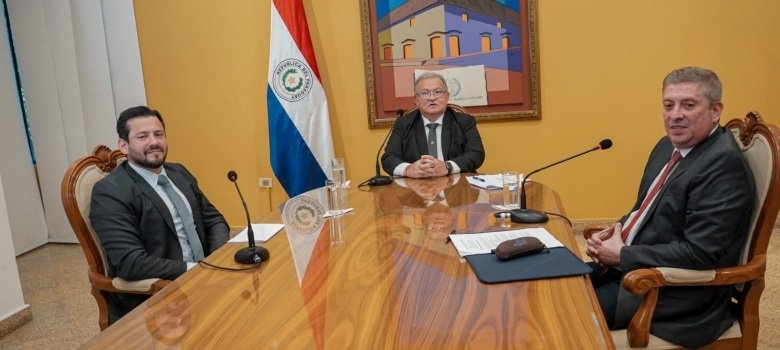An active participation of the electorate, electronic innovation and the presence of international electoral observation missions, were the highlights during the general elections of April 30, in the report presented by the ministers of the Superior Court of Electoral Justice, Jorge Bogarín González (President), Cesar Emilio Rossel (Vice President) and Jaime Bestard after the ordinary session of the highest electoral instance.
Minister Bogarín González argued that the platforms of voting practice and dissemination, through simulators and deployment of Voting Machines in centers of high citizen competition threw positive results, something ratified by Minister Rossel when citing education programs civic electoral like “Educate to Choose”.
The president of the TSJE also announced that officials of the institution are committed to crossing the registers of the polling stations deployed in the National Elections for the application of fines for not going to vote, affirming regarding the issue that “all citizens who are notified will be able to justify the circumstances of their absence”, an explanation that sought to convey reassurance to the public.
In addition, the head of the highest electoral instance also reported that it will seek, through sustained work, to promote the deployment of Accessible Voting, as well as programs that accompany the transmission of the importance of electing authorities through suffrage, something endorsed by Minister Rossel. In this regard, the vice president of the TSJE indicated that these tasks “seek to take more care of the seed sown with the programs “Educate to Choose” and “Electoral Justice in my College”, as well as what was done with the Labor and Socio-Community Educational Internships.
For his part, Minister Rossel indicated that technicians from the institution are devoting efforts to the application of biometric control in the Vote Receiving Tables, as well as in the implementation of the Electoral Registry offices throughout the country so that they can also serve of a space dedicated to citizen attention concerning the Permanent Civic Registry (RCP) and other services such as accompaniment to elections of intermediate organizations, such as “civic centers”, in order to broaden community citizen interest.
Regarding the task of the observation missions by international organizations, such as the European Union, the Organization of American States and the Inter-American Union of Electoral Organizations, Minister Bestard highlighted the positive aspects shown in his preliminary reports on the implementation of progress of the elections, also highlighting the document issued by the Inter-American Institute of Human Rights (IIDH-CAPEL), which carried out a technical audit of Electronic Voting whose conclusion highlights the reliability and the possibility of verifying the system.
“The guarantee and reliability of the results is reaffirmed,” concluded Minister Bogarín, also referring to the Electoral Results Transmission System (TREP) whose margin of error (0.05% between the unofficial and official results) accounts for of the positive qualification of the electoral process.
